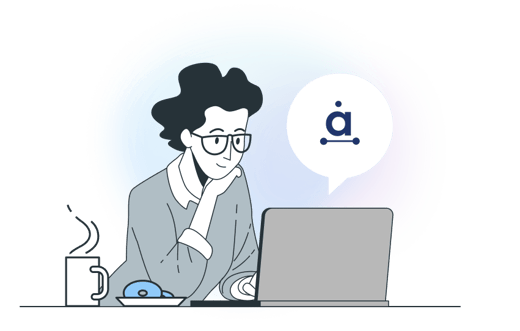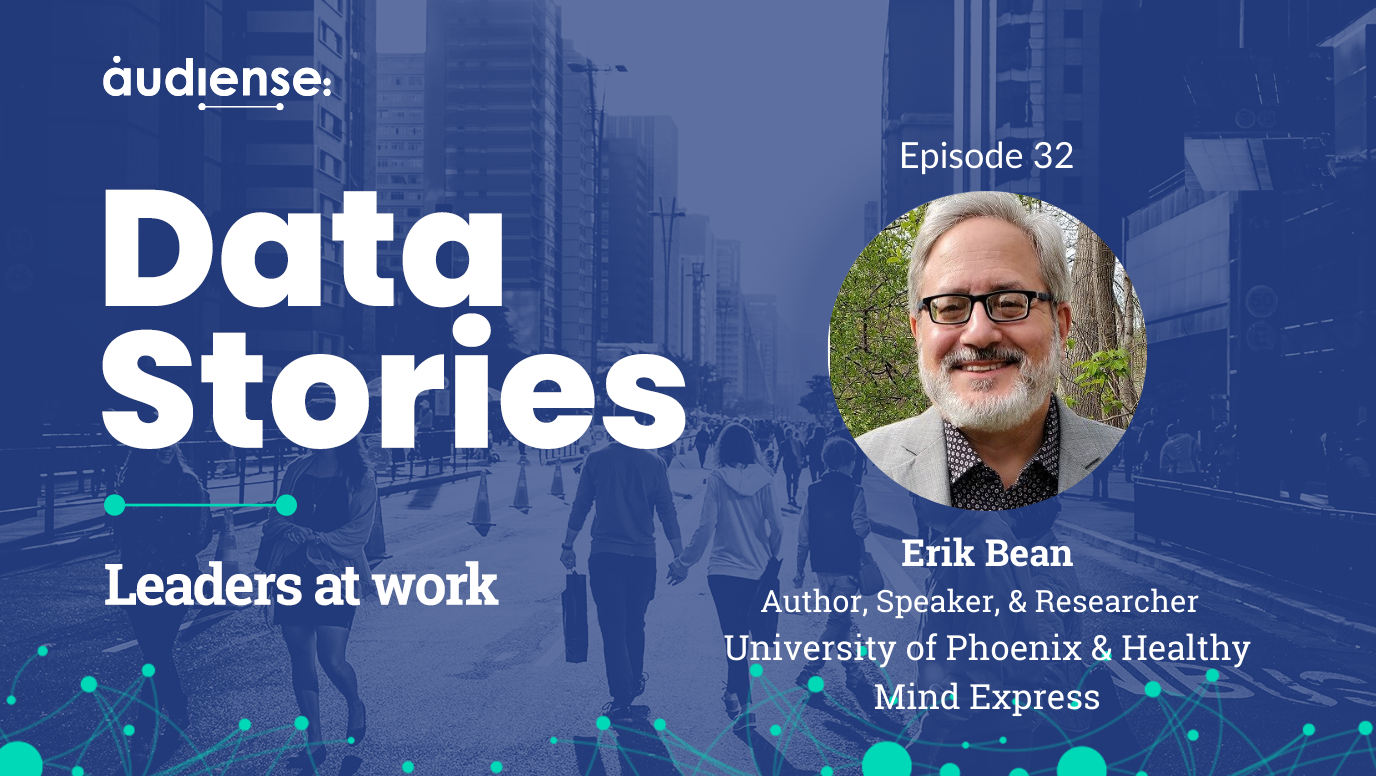[PODCAST] As researchers, we need to check our own biases before we go out and do research
Data Stories: Leaders at Work is a weekly podcast brought to you by Audiense. Hosted by Rahul Jerome, founder of insight-intelligence.com, the series captures personal anecdotes and career highlights from some of the most talented and brightest minds in the research and insights industry.
During this episode of Data Stories: Leaders at Work, I speak with Erik Bean, an industry thought leader and academic specialising in bias. Erik is an author, speaker and is a current researcher at the University of Phoenix. He has been responsible for suggesting legislation for social media platforms that help to offset a number of fake internet ads that pose themselves as viable news sources, and he also holds a doctorate in education with research studies done in leadership and mindfulness as well as running his own nonprofit for mental illness.
Erik begins by speaking about how he came into academia. He began with an interest in psychology and journalism, figuring out ways of communicating his findings through various mediums. He carried out various pieces of research while working for different journalistic publications, working on his research skills as he did so. However, research was how he really began to hone his skills through both content analysis and qualitative research where feelings and emotions are taken into higher consideration. At the beginning of 2021, in the wake of the US presidential election and the pandemic, his book Bias is All Around You came to fruition; a handbook for inspecting social media news stories and other sources of information, speaking about how social media networks are used for sharing misinformation and information that was not being fully vetted. The book also inspects how personal biases come into play when people begin to share misinformation online. This book comes after a paper that Bean presented at the University of Oxford, which spoke about fake internet advertisements. Through his research, Bean aims to teach people to understand sources of information and how to discern between something that has been vetted and something that has not, with the end goal of giving readers the knowledge necessary to stop believing misinformation that is found online.
Erik then goes on to explain a major part of his book which centres around the seven sources of bias, which he explains all sources of information can be sorted into:
- Academic; some of the information we see comes from the academic community such as schools, colleges and universities - sources who wish to share knowledge.
- Hidden Agenda Groups; groups who claim that they represent one cause, but may have ulterior motives
- For-profit; where most of our info comes from because we live in a free enterprise world
- Nonprofit; public charities or philanthropic foundations
- Watchdog groups; partly nonprofit, but have a different purpose than most other nonprofits because they’re watching other groups and making sure that they’re doing the right thing
- Government; different government departments will share different information
- Individuals; the internet gives individuals the power to share and publish information online
He explains that these categories are where initial bias comes from.
Erik then makes an important distinction, that just because we receive a lot of biased information through the internet, this does not mean that we aren't receiving any good information at all. What it means, rather, is that we should be aware of the kinds of information that are out there. He also assures us that there are enough different sources of information available to us now that we can be sure we are receiving good information in some capacity, as long as we know how to discern between the two.
He also sets out some ways in which we can ensure we are not being subjected to fake information and that we are capable of looking at what might not be true, which his book goes into in more depth. He recommends stepping back before sharing any information and asking ourselves how authentic it really is, and whether it really supports our values; this is when we take a look at our own biases. We live in an age, he explains, where people have permission to say whatever they want and it isn't necessarily true. We may never be 100% sure what is fact and what is fiction, but the book does show the reader methods to test the information for fallacies.
The purpose of the book, Bean explains, is that we don’t want anyone being a victim of misinformation but we also want to discover why some people still want to share information even though they know it isn't true, and how there are no consequences for doing this. This is where cognitive dissonance comes in, which is the name we give to what happens when your behaviours are different to your thoughts but you do it anyway. It unsettles people, but it isn’t enough for them not to do it.
Finally, we discuss the mental ramifications of such cognitive dissonance, discussing how the sharing of misinformation can lead to people suffering mentally which is what lead Bean to begin his nonprofit Healthy Mind Express, started after his son, Ethan, lost his life to mental illness. This nonprofit aims to not only help those struggling with mental illness but those who struggle with misinformation online and suffer mentally as a result.
The full version of the podcast with Erik Bean can be listened here:





